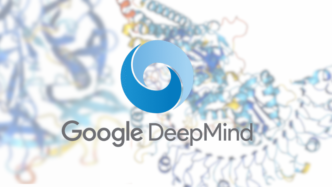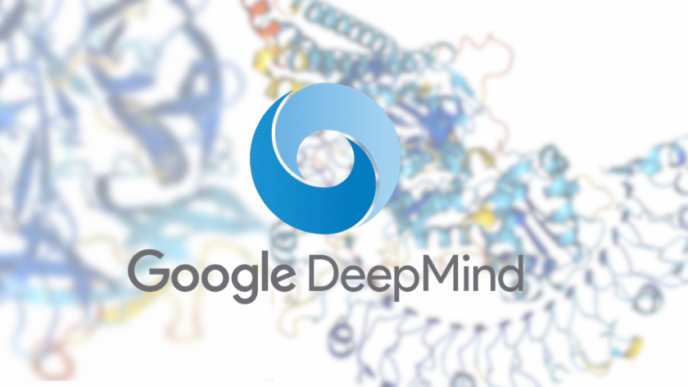As advancements in AI simulation accelerate, the future of quantum computing in complex fields like physics and chemistry is increasingly uncertain.
Quantum computing has long been heralded as the next frontier in computing, with the promise to solve complex problems in fields like chemistry, physics, and materials science. Yet, recent advancements in artificial intelligence are challenging the need for quantum computing in these domains. Some experts are now questioning if AI could outshine quantum computers before they even reach their full potential.
The Rise of AI in Physics and Chemistry
AI’s Growing Influence in Scientific Simulations
• Simulation Power: AI models are showing an impressive capacity to simulate complex quantum systems.
• Data-Driven Accuracy: AI’s ability to learn patterns in data has opened new possibilities for modeling interactions in chemical compounds and materials.
• Industry Leaderboards: Meta’s recent AI model, trained on a large dataset of materials, now leads in machine-learning-based material discovery.
Expert Insight: Giuseppe Carleo from EPFL suggests that AI is quickly becoming the preferred approach for modeling materials with strong quantum properties.
Why Quantum Computing Still Matters—But Faces Challenges
The Promise and Pitfalls of Quantum Hardware
• Quantum Power: Quantum computers have the potential to perform specific calculations exponentially faster than classical computers.
• Current Limitations: Despite progress, quantum computers are still constrained by hardware limitations, with most only surpassing the thousand-qubit mark.
• The Goal: Experts estimate that a quantum computer would need tens of thousands to millions of qubits to consistently outperform classical systems.
Example: Quantum algorithms like Shor’s algorithm hold promise for encryption-cracking but require much larger quantum processors than what currently exists.
AI as a Contender in Chemistry and Materials Science
Narrowing Quantum Computing’s Target Applications
Researchers are starting to identify specific problems that only quantum computers are suited for, such as highly entangled, complex quantum systems. However, for more standard applications in chemistry and materials science:
• Density Functional Theory (DFT): DFT is a widely used classical approach for simulating chemical structures and materials with weakly correlated systems.
• AI-Powered DFT Models: AI can now accurately simulate up to 100,000 atoms at a time, thanks to machine learning models trained on DFT-generated data.
Stat: By using data-driven AI models, researchers can now simulate properties of weakly correlated materials far more efficiently than with traditional methods.
How AI Models are Surpassing Quantum Systems in Key Areas
AI-Driven Simulations of Quantum Systems
AI’s entry into strongly correlated quantum systems—the kind where particles are highly interactive—has made significant progress. For example:
• Neural Network Advances: In 2017, researchers at EPFL showed that neural networks could effectively simulate these strongly correlated systems.
• AlphaZero-Like Approach: AI models “train” by arranging particles and observing energy levels, aiming to reach the lowest energy configuration.
Insight: AI models compress massive amounts of information into simpler forms, enabling classical computers to handle what were once purely quantum problems.
Expanding the Reach of AI in Science
• DeepMind’s Breakthrough: In a recent paper, DeepMind showcased an AI model that could predict excited states in quantum systems, opening doors for applications like solar cells and sensors.
• Microsoft’s Open-Source Suite: Microsoft developed an open-source software suite that enables more researchers to use neural networks in quantum simulations.
Stat: The number of particles AI can simulate at once has grown exponentially, with some models handling up to 100,000 atoms.
Why Quantum Computing May Still Hold the Key to Certain Problems
Tackling Exponentially Complex Quantum Systems
While AI shines in certain simulations, quantum computers retain unique strengths for tackling the most challenging problems.
• Quantum System Evolution: Quantum computers are particularly adept at simulating time-evolving quantum systems, like those in high-energy physics.
• The Exponential Complexity: In strongly correlated systems, the need for exponentially scaled calculations still makes quantum computers an ideal tool.
Expert View: IBM’s Jay Gambetta argues that for many high-impact applications, like simulating metabolic processes, only a quantum computer can provide the precision needed.
The Hybrid Approach: Merging AI and Quantum Computing
Quantum computing and AI aren’t necessarily competitors. Many experts believe the future lies in hybrid approaches where both technologies are used in tandem.
• Collaborative Potential: AI could handle simpler simulations, while quantum computing addresses more intricate calculations.
• Potential Applications: This combined approach could benefit industries like pharmaceuticals, where complex biological interactions require both classical and quantum insights.
Quote: “I don’t think they’re in competition. I think they actually add to each other,” says Jay Gambetta from IBM.
Conclusion: The Future of AI and Quantum Computing
The ongoing AI advancements in scientific simulations indicate that AI could address many of the challenges quantum computing was expected to solve. However, as hardware limitations persist, quantum computing is unlikely to deliver its full promise in the immediate future. For now, it appears AI and quantum computing may coexist, each serving specific roles in the complex landscape of scientific and commercial applications.
The pursuit of quantum computing remains crucial for scientific breakthroughs, even as AI continues to evolve rapidly. The future likely holds a collaborative model, leveraging AI’s power for immediate challenges and quantum computing for the intractable problems on the distant horizon.













